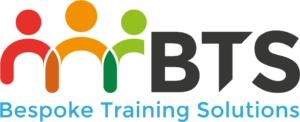In this article Alex Langhorn, head of Business Support at Bespoke Training Solutions, looks at two areas of exam preparation that can make a significant difference to the exam outcome, but which often get overlooked; making your study plan more effective, and improving your exam technique.
 Having a realistic study plan and good exam technique, with strategies to overcome sticking points and setbacks, will not only improve your chances of exam success, but can also make the learning experience less uncomfortable and more enjoyable.
Having a realistic study plan and good exam technique, with strategies to overcome sticking points and setbacks, will not only improve your chances of exam success, but can also make the learning experience less uncomfortable and more enjoyable.
Is there a study plan success formula?
There is no silver bullet to a fast-track exam pass. The R0 study texts (BTS versions included) are weighty volumes and there is a huge amount of self-study involved. Undertaking this self-study requires strong intrinsic motivation, dedication, and resilience. Whether a candidate is balancing work alongside study, or studying full time, staying on track can be a real challenge. Sometimes candidates underestimate the amount of work required, whilst others put in the hours and then fall down with their exam technique.
We all know that failing to prepare is preparing to fail, but what is the most effective ‘real-world’ strategy to prepare for the R0 exams?
Use the syllabus to focus your study plan
Get started on the right foot by investing some time getting to know the syllabus. The syllabus contains important information on the learning outcomes that will be examined.
Learning outcomes are not just there to give you an idea of what you can hope to achieve by completing the unit, they are specific indicators of the knowledge, skills and abilities that will be tested in the exam. Let’s take R01, for example, here you have a spread of 11 learning outcomes, each starting with a clear command verb. A learning outcome starting with the verb ‘understand’ indicates that you will be expected to show your knowledge of that area in the exam. A learning outcome headed up ‘apply’ indicates that you will need to use your knowledge of the topic in relation to a set of circumstances. Learning outcomes starting with ‘critically evaluate’ go one step further, indicating that you not only need to know about the topic, but also make value judgements, comparisons and appraise the importance of it.
Arming yourself with an understanding of the purpose of the exam questions i.e., what they are designed to test, will give insight into how to go about studying the different areas within the unit. The exam is not a memory test. If it were, each learning outcome would start with words like ‘know’ or ‘state’. The examiner wants to see that you can apply your understanding in a variety of situations, not just repeat a set of learned answers verbatim.
Your study plan and exam strategy need to prepare you for unexpected questions. No provider of study resources can replicate the paper you are going to sit exactly (we can get close, but not exact!). Nor can you just read the study text from cover to cover and expect to pass (you might, but you would need an exceptional memory for that approach to work!).
Remember, the exam is designed to test how well you can apply your knowledge. Your study plan needs to set off with this goal in mind, to be ready to decode and ‘de-fluff’ the exam questions to show the examiner that you can actively apply your knowledge. How do you do this? By incorporating active learning experiences into your study plan, not just passive reading.
Three active learning strategies to get exam ready
1. Ask yourself questions about what you are learning
Reading the study text is an absolute must, there’s no avoiding that. But there is a difference between passive reading and active learning. You might already put regular check points into your reading, to assess whether you have understood what you have read. Whilst checking your understanding is important, just because you feel you understand something doesn’t necessarily mean you will be able to recall it in the exam. Research published in the Journal of Educational Psychology found that learners who ask themselves conceptual questions about what they are reading, are more likely to retain the learning. (Bugg & McDaniel, 2012).
A conceptual question is a question that encourages you to think critically about the context of the thing that you are learning. For example, questions that start ‘why…?’ and ‘how…?’ require you to justify your answer using the concepts you have learned. Another good example is a question that asks you to adapt an explanation to a new situation, such as ‘if X is the case here, how would this relate to Y?’.
Conceptual questions require you to construct an answer from your knowledge rather than simply recalling a stock response. Generating a conceptual question on something you have read requires you to identify and combine key pieces of information and is a great way to check your comprehension and embed your learning at the same time.
2. Generate your own notes by presenting the information in different formats.
You may have heard that writing something down is proven to improve the retention of the information. To really tap into the benefit of the cognitive processing that occurs when you write something down, try presenting the information in another format. For example, if you are reading about the pros and cons of a product, try generating a comparison table. Reprocessing the information into a new format is another way to make your learning more active. It takes you beyond immediate recall, requiring you to sort and organise the information. This technique will also help you in the exam, where you are likely to see things you have learnt, presented in different ways. Recognising the source information will help you to cut through the extraneous information in the exam question and get to the nitty gritty of what is being asked.
3. Have a go at sample questions and reflect on your attempts
Applying your knowledge to sample questions is good practice for the exam. You won’t get everything right straight away but reflecting on your attempts is just as important as the attempts themselves. Keep it simple. What happened? Ask yourself objective questions about what you did well and where you made errors. So what? Can you spot any patterns or themes emerging in your identified areas of weakness/strength? Now what? Do you need to do anything differently to improve in these areas? Building reflective learning into your study plan is a good habit to start early on and will serve you well should you progress to higher exams in the future where reflective practice is a key part of the assessment. The ‘what, so what, now what?’ reflective model (Rolfe, 2001) is a quick and productive way to gather immediate thoughts and put them straight into action.
Tips to avoid procrastination
Often thought of as poor time management, procrastination can derail your study plan and can sometimes rear its head in an exam sitting too. Have you ever found yourself stuck in a vicious loop of knowing that you need to get a task done yet something keeps distracting you from the task at hand? Leading to a heightened sense of urgency to get the task done, less time to do it in, and guilt/anxiety over letting yourself get distracted. All in all, not a nice feeling. Yet many of us do it, so what is going on there and how can we avoid it?
Procrastination, or task aversion, is not as simple as poor time management, so attempting to avoid it by producing a more organised study timetable won’t necessarily help to get your head back in the game. It can sometimes even make it worse! Research has shown that task aversion is linked to emotion, usually a difficulty in managing feelings around stress. It can be triggered by things like anxiety, fear of failure and lack of intrinsic motivation for the task. In this low mood state, the emotional side of the brain overcomes the logical, rational brain, and seeks a temporary fix. Cue scrolling through cute kitten videos, or anything else that provides a temporary mood boost! To beat procrastination, you need to reframe the task and deal with the triggers, let’s take some examples:
1. If the task ahead is too big, or your goals are inflexible, you are setting yourself up to fail. A schedule made up of a long to-do list will make the mountain seem bigger, causing anxiety and triggering the task aversion behaviours. Create a SMART study plan, outlining what you intend to do and when you intend to do it. Keep it specific, achievable, and realistic by chunking your goals down into milestones. Listing what you have completed, as opposed to everything still to be done will help to boost your mood and keep you focused.
2. Avoid all or nothing thinking. Your study text may seem overwhelming at times, but it’s rarely as bad as you anticipate once you get started. If you’re stuck in a rut, take a small topic and do anything to get started. Start where you are and do what you can, just get started.
3. Don’t expect mastery straight away. Aiming for perfection is another type of all or nothing thinking that is linked to procrastination. Try to monitor improvement and progress, again, it’s about the small wins along the way.
4. Remind yourself of the reason behind what you are doing. What is the bigger picture for you? Intrinsic motivation is a fierce driver for progress. Find your ‘why’ and those study hours will feel worth it.
5. Disconnect from your go-to distractors. Put your phone in another room, turn off the internet, whatever it is that lures you away when the going gets tough. Take some time to set up a study environment conducive to the task, and schedule regular, timed breaks to let off steam.
Getting exam ready
Professional exams are not easy! Some candidates find the exam questions more difficult than the ones they have been practising on. Others struggle to decipher what the question is really asking. Then there are those who go to pieces part way through the exam.
Passing regulated exams requires a combination of excellent technical knowledge, good exam technique and the right mindset. A good final check of your exam readiness is to apply the KASH formula (LIMBRA). Knowledge, attitude, skills and habits:
• Have I done enough study to make sure I KNOW all the required information?
• Am I going into the exam with the right frame of mind? Do I have the right ATTITUDE to the exam? This can include having ways to handle the potential stress caused by any unexpected or more difficult questions.
• Do I have the SKILLS to be able to answer questions that might look different to the ones I have seen before? Do I have a process I can apply in order to arrive at the right answer?
• Have I developed good exam HABITS? This is all about practice, practice, practice. Looking at as many practice exam questions as you can, making sure you can provide full rationale in your own mind, not just for the correct answer but also why all the distracters are incorrect.
References:
Bugg, J., & McDaniel, M. (2012). Selective benefits of question self-generation and answering for remembering expository text. Journal of Educational Psychology, 104 (4), 922-931 DOI: 10.1037/a0028661
Rolfe, G., Freshwater, D., Jasper, M. (2001) Critical reflection in nursing and the helping professions: a user’s guide. Basingstoke: Palgrave Macmillan

About Bespoke Training Solutions
Bespoke Training Solutions (BTS) have been supporting regulated exams for 17 years, specialising in R0 support with outstanding candidate tracked results and feedback. Resources include digital and printed study guides, group and 1:1 training, e-Learning modules and a mobile app of practice exam questions. Visit www.bespoketrainingsolutions.com to learn more on how BTS can help you on your regulated journey.
[Main image: nick-morrison-unsplash]






























